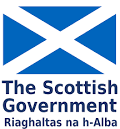HISTORIC PRESS RELEASE : Top private sector team to lead 8 billion pounds Whitehall efficiency drive [February 1999]
The press release issued by HM Treasury on 16 February 1999.
A team of top private sector managers is being brought into Whitehall to help deliver a 8 billion Pounds annual efficiency plan as part of the Government’s drive to reform public services.
The Public Services Productivity Panel, which will be chaired by Chief Secretary to the Treasury Alan Milburn MP, will include leading figures from the world of business and audit.
Today the Prime Minister will hold a joint meeting of the Panel and PSX, the Cabinet committee charged with ensuring the delivery of the Government’s modernisation programme in public services.
Ministers believe that delivering real change for the better in schools, hospitals and other services is the priority for the remainder of this Parliament and the achievement against which the Government will be judged.
The focus for the Panel’s work will be on ensuring that new government investment such as the extra 40 billion Pounds for health and education brings modern, high quality services.
All government departments have been set demanding targets through new Public Service Agreements to improve performance and efficiency with funding tied to results.
This new approach to improving the quality and responsiveness of public services has involved the Government setting itself 500 targets covering all the major services.
Key targets include reductions in school class sizes, hospital waiting lists, and vehicle crime.
The Panel will look at departments’ systems for managing and monitoring performance against their 500 targets.
It will report to Ministers on where changes is needed and where productivity could be improved.
In particular, the Panel will advise the Government about how increased efficiency and value for money can be delivered in public services.
The Government’s efficiency targets aim to release over 8 billion Pounds a year by 2001-2.
The Treasury has agreed that every pound in efficiency gains can be reinvested in frontline services and other priorities.
Individual targets include:
- 1% unit cost savings in colleges and universities in 1999/2000 worth 70 million Pounds ;
- 2% rising to 3% efficiency and value for money gains in social services worth 200 Pounds million next year;
- 2.5% annual efficiency gains in the driving and vehicle licensing authority worth 4 million Pounds next year;
- 2% a year improvements in the police service worth 150 million Pounds next year;
- 2.5% annual efficiency gains in the Treasury worth 1.5 million Pounds next year.
Across Whitehall improvements in efficiency will feature a drive to improve procurement and a fight against fraud and days lost through staff sickness absence.
The Panel will also focus on how systems to spread best practice in public services can be improved.
Ministers are concerned about variable performance. They cite huge variations in cost and outcomes as evidence of the scope for dramatic improvements in efficiency and performance:
- for all surgical procedures, the lowest cost NHS Trust is 30 per cent below average, and the highest around 60 per cent above the average
- nationally, the reported percentage of emergency readmissions within 28 days of discharge for patients aged 75 and over is 8.1%. In the worst ten health authorities, 1 in 8 patients are readmitted; whereas in the best, around 1 in 30 patients are readmitted
- schools from parts of the country with similar social and economic characteristics produce differing GCSE attainment – with average scores as low as 25 points per pupil for some schools, and as high as 45 points per pupil in other
-
Gwent force detected 44% of crimes in 1997-98; whereas Gloucestershire detected under 20% – compared to a national average of 26%.
Speaking today, the Prime Minister said: “These top British businessmen and women will play a major part in driving though greater efficiencies and freeing an extra 8 billion Pounds for front line services such as schools and hospitals.”
Alan Milburn said: “Delivering real tangible change for the better in the key public services is the priority for the remainder of this Parliament.
The Government is committed to delivering modern first class services which make the very best use of the extra cash the Government is providing.
We are determined that 40 billion Pounds worth of extra investment in health and education brings 40 billion Pounds worth of improvements.
The Panel will help identify the root and branch changes that are needed to ratchet up public service productivity and performance.
This new efficiency drive will free more resources for frontline services.”
NOTES FOR EDITORS
1. The members of the Public Services Productivity Panel are:
- Alan Milburn MP,
- Chief Secretary (Chair) Byron Grote,
- Group Chief of Staff, BP (Vice Chair) John Dowdy,
- Principal, McKinsey & Co Andrew Foster,
- Controller, Audit Commission Dame Sheila Masters DBE,
- Partner, KPMG John Makinson,
- Group Finance Director, Pearson plc John Mayo,
- Finance Director, GEC Lord Sainsbury,
- Minister of State, DTI Lord Simon,
- Minister for Trade and Competitiveness in Europe,
- DTI/HM Treasury Clare Spottiswoode,
- Senior Vice President, Regulatory Affairs, Azurix
2. The Panel’s terms of reference are “to advise the Government on ways of improving the productivity and efficiency of Government departments and public sector bodies”. The Panel will report to a Cabinet Committee (PSX) chaired by the Chancellor.
3. Public Service Agreements in the full range of Government activity were published in a White Paper in December 1998 (“Public Services for the Future: Modernisation, Reform and Accountability” (Cm 4181)). The Agreements, containing over 500 measurable objectives and efficiency targets, set out what the Government will deliver in return for the extra resources provided in the Comprehensive Spending Review.



